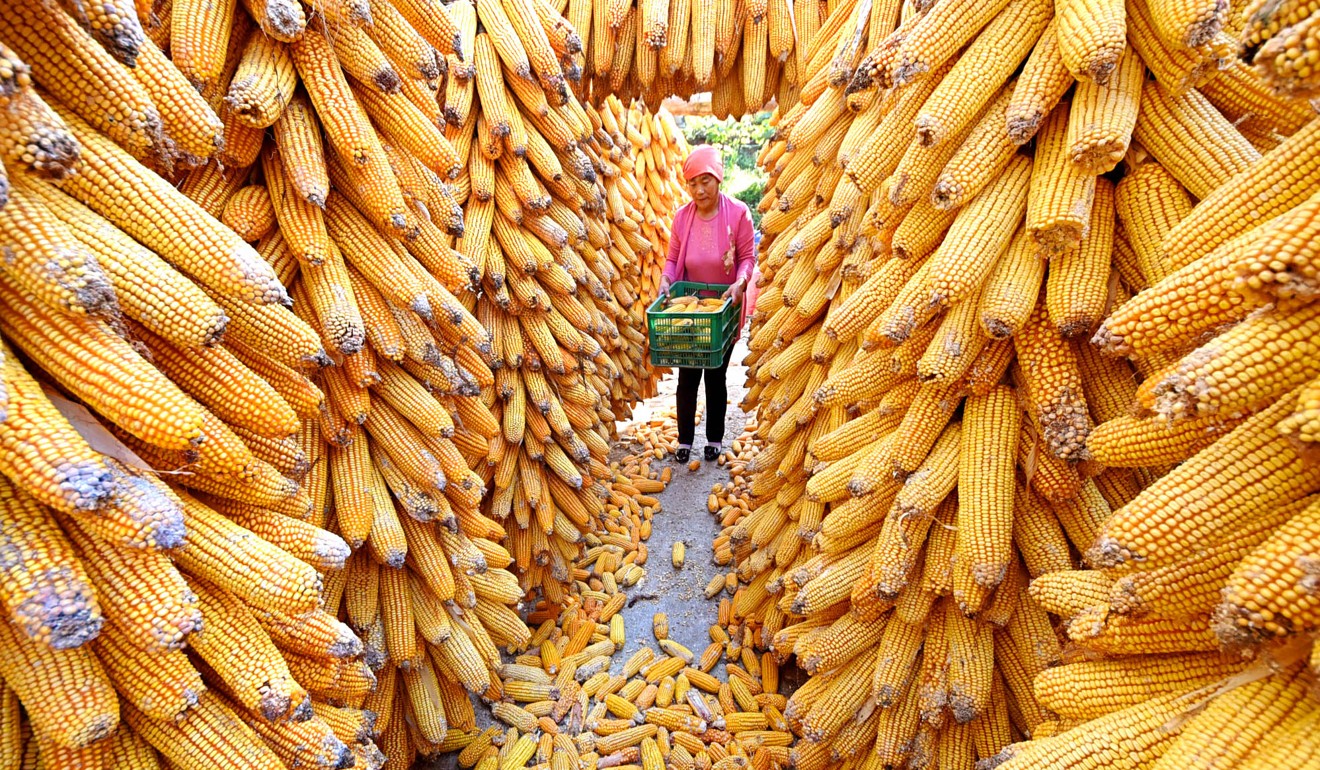
China plans to issue biosafety certificates for home-grown GM soy and corn crops
- Analyst says move may signal policy change in central government, paving way to commercial production of GMOs
- Source at Chinese developer of GM strains says approval will be ‘significant progress’
China’s agriculture ministry said on Monday that it planned to issue biosafety certificates for a domestically grown, genetically modified (GM) soybean crop and two corn crops, in a move towards commercialising GM grain production in the world’s biggest market.
China will grant the certificate to the SHZD32-01 soybean developed by Shanghai Jiao Tong University in Shanghai, provided there was no objection during a 15-day period soliciting public opinion, the ministry said in a statement.
If approved, it will become China’s first GM soybean crop to receive such a certificate, a first step towards commercial production.
Beijing-based technology group Dabeinong’s DBN9936 corn and a pest resistant corn variety known as “double-stacked 12-5” developed by Hangzhou Ruifeng Biotech and Zhejiang University were also expected to attain the certificate.

China has spent billions of dollars researching GM crops, but has held back from commercial production of any food grains because of consumer concerns about their safety.
China granted biosafety certificates to its first GM corn varieties and two domestic rice varieties in 2009, but has not moved to commercialise those crops.
Some in the industry believed Beijing’s most recent move could mean that China is ready to start commercialisation of some domestic GM crops.
China approves two new genetically modified US crops for import
“This signifies the policy changes from the central government as China is moving to commercialise GM corn,” said James Chen, chief financial officer at Beijing-based Origin Agritech.
“GMO corn commercialisation would benefit Chinese farmers, especially those in northeastern China,” he said.
Origin Agritech received biosafety certificates for its phytase GM corn trait in 2009 and has several varieties of GM corn in the pipeline for approval.
China said it aimed to push forward the commercialisation of GM corn and soybeans by 2020. Beijing has long approved imports of these products.
“If the government actually issues the certificate, it will be significant progress,” said another source with a major developer of GM crop strains in China.

“But it really depends on whether the crops can be commercialised in the end,” said the source.
Beijing and Washington agreed to speed up the approval process for imports of GM crops as part of efforts to improve bilateral trade.
GMO crops have been a source of tension, with the US arguing China’s position is not based on science and has been used as a non-tariff barrier. In 2013, China rejected several cargoes of corn and distillers dried grain from the US because of the presence of a GM variety that took the Asia nation almost five years to approve, said Darin Friedrichs, a senior analyst at INTL FCStone in China.
“The news helps confirm China’s opening of its market to US GM products and dropping additional non-tariff barriers,” said John Payne, senior futures and options broker at Daniels Trading in Chicago, Illinois.
Additional reporting by Bloomberg

